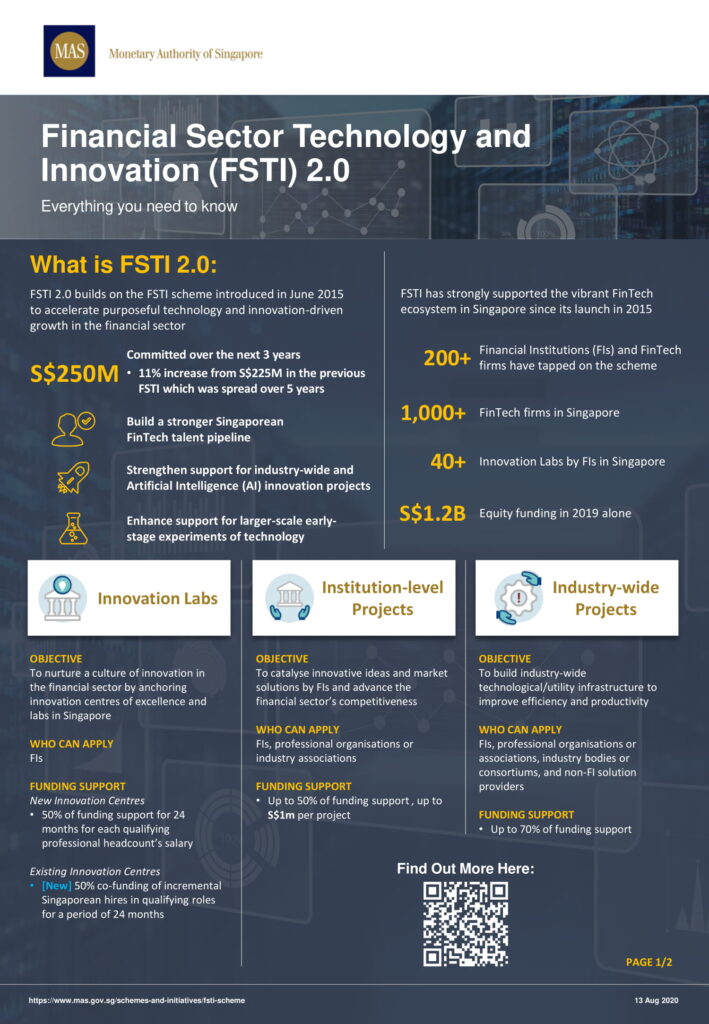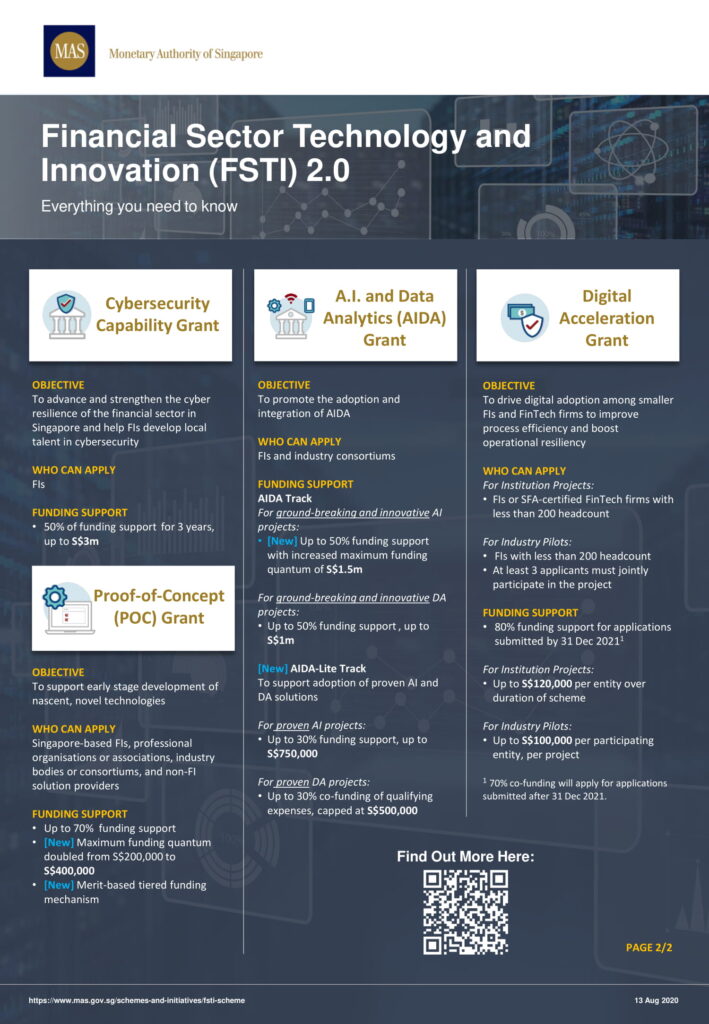
MAS Commits S$250 Million to Drive Innovation and Build Fintech Talent Pipeline
by Fintech News Singapore August 13, 2020The Monetary Authority of Singapore (MAS) announced that it will commit S$250 million over the next three years under the enhanced Financial Sector Technology and Innovation Scheme (FSTI 2.0) to accelerate technology and innovation-driven growth in the financial sector.
Funded by the Financial Sector Development Fund, FSTI 2.0 also aims to deepen the cybersecurity capabilities in the financial sector.
In the FSTI 2.0, MAS will double the maximum funding quantum, from S$200,000 to S$400,000, under the Proof-of-Concept (POC) Grant, and will increase the maximum funding support from 50% to 70% of qualifying project cost.
The higher funding support will enable financial institutions and fintech firms to undertake larger-scale POC projects to experiment, develop and deploy innovative solutions, empowered by emerging technologies.
MAS is also looking into strengthening the adoption of Artificial Intelligence (AI) within the financial industry and will raise the maximum funding quantum for all qualifying AI projects under the Artificial Intelligence and Data Analytics (AIDA) Grant from S$1 million to S$1.5 million, to provide greater impetus for financial institutions to implement innovative AI solutions.
In addition, MAS will introduce a new AIDA-Lite track, providing half the funding quantum of the AIDA track. With AIDA-Lite, financial institutions will be able to obtain funding support to adopt proven AI solutions to enhance their operations.
In order to build a stronger talent pipeline, MAS will co-fund existing innovation labs for new Singaporean hires to encourage the expansion of existing labs and groom Singaporean talent. Furthermore, all new projects under the Financial Institution-Level Projects, Industry-Wide Projects and AIDA Tracks will now qualify for funding support for capability transfer-related training costs.
Such training costs include expenses incurred to engage specialists to train the local talent pool, and expenses incurred to send local employees for overseas trainings. These training programmes will help to support workforce transformation in the financial sector and to accelerate skills and knowledge transfer to Singaporean talents.
The launch of the FSTI 2.0 was announced by MAS managing director Ravi Menon to build on the FSTI scheme introduced back in June 2015.









